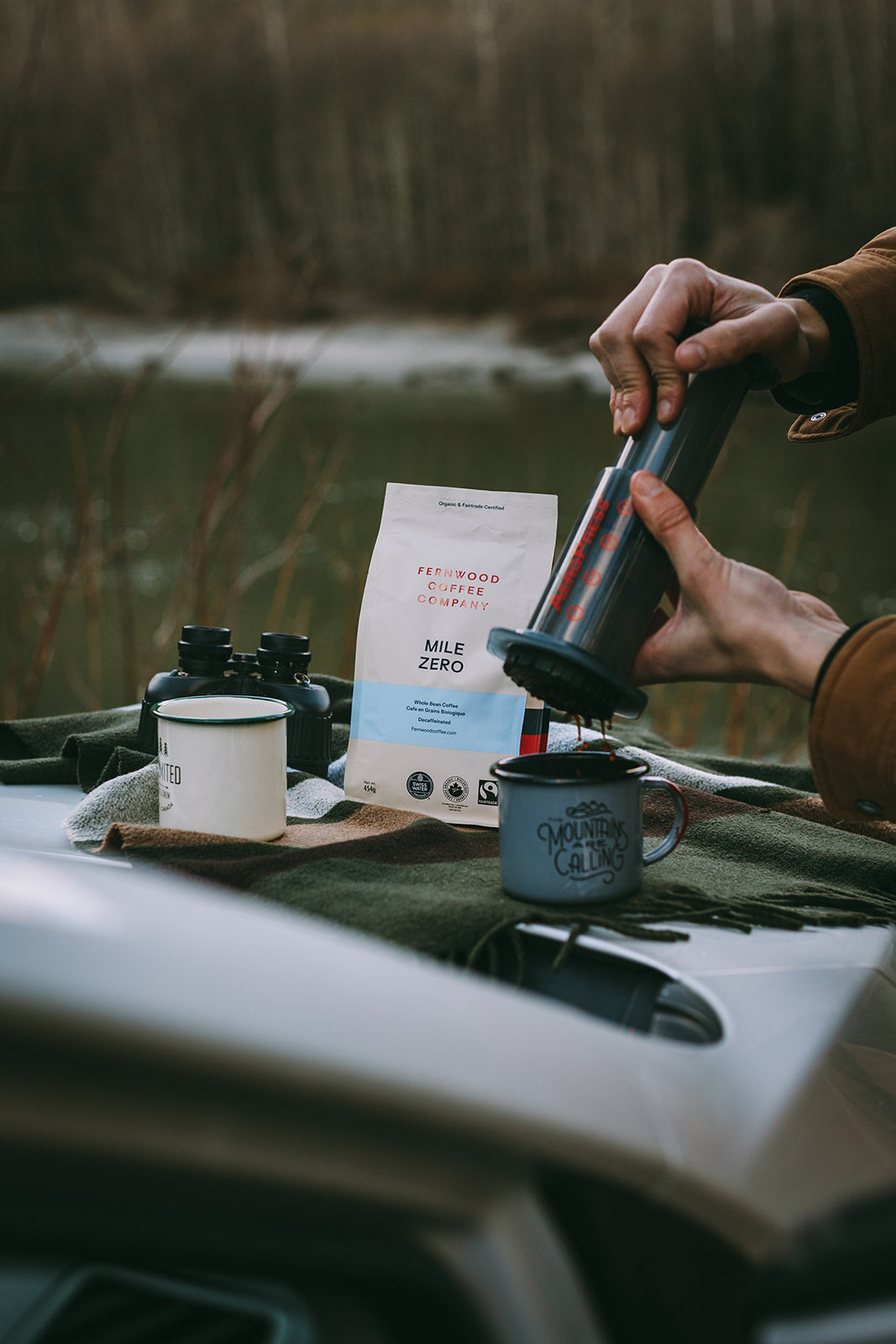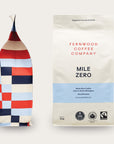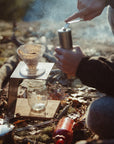If you've read anything else in our Journal, you'll know that we're not just passionate about coffee. We're adamant about the quality and processes from seed to cup, and we share those values with Mike Strumpf, the Senior Director of Coffee at Swiss Water Process in Delta, BC. Mike and I dig into the processes behind decaffeinating coffee, how Swiss Water differs from others, why decaf coffee drinkers are sometimes the most discerning drinkers out there, and more.
Read on to learn more about our beloved, chemical-free decaf.

Decaf isn't something other than coffee:
BEN: I realized that the people walking through my door ordering decaf, in a lot of cases, were more discerning about the taste than anyone else, because they weren't just there for some caffeine. You know, you get that percentage who say, "I don't care. I just need the caffeine, fill my cup", versus people who say, "no, I drink this because I really genuinely enjoy the taste". Those are the people who are going to complain about a bad cup of coffee before the guy who just wants a jolt, you know?
MS: Yes, and decaf represents that for a large percentage of people. Around 20% would stop drinking coffee when they hit their caffeine limit. Decaf allows them to not stop drinking coffee. And the fact that they don't have to stop drinking coffee means we can support everybody.
And that's what I really like about decaffeinated coffee: changing people's mindset so that decaf isn't something other than coffee. It's just coffee. Have more of it. It supports a lot of people around the world.
Relationship Coffee:
MS: Decaf is not like some extra thing. It's supporting who you're already supporting and just supporting it more. I think the idea of relationship coffee, isn't talked about so much anymore, but it's still very important and relevant.
I put a lot of importance on supporting the value stream of coffee. Everybody involved from seed to Delta, British Columbia where our decaffeination plant is. Decaffeinated coffee allows Swiss water and roasters like yourself to support producers by buying their coffees. Our website has a lot-tracker where you can find out source-information on the coffees that we decaffeinated.
There's a unique production run number for each coffee. You put that into the website and you can find out the coffees that went into it. And on that lot tracker, we list the length of the relationship between Swiss Water and our importer, as well as Swiss Water and the producer or exporter
Wait, what do you mean chemical-free decaf?
MS: Focusing on continuous improvements in engineering and operations has shown consistent improvement in our coffee. Coffee sourcing has changed over the last 10 to 15 years, too. This outdated idea of decaf having a stigma or being different from the other coffees that you're offering has changed in specialty coffee.
The quality of coffee that goes into decaffeination is so important for the quality of the coffee that comes out. As a small roaster, you don't necessarily have enough buying power to send your own coffee for decaffeination, so you get to know who's buying your decaffeinated coffee so that you can trust it and understand.
The primary question we get is, "Oh, it's chemical free?", and it's either, "I didn't know there was a difference", or "I thought all decaf coffee had to have chemicals. So what is it, how is it done, and how does it differ from the standard?".
Removing caffeine is quite easy because it's a soluble solid, which means it brews out through water. The tough part is keeping the flavour in the beans. So the Swiss water process is 100 percent chemical free using water, coffee, time, and temperature to remove the caffeine from the specialty coffee, leaving the origin character untouched. We're just taking out the caffeine and leaving the flavour in the beans. We are how great coffee becomes great decaf.
Four stages of processing chemical-free decaf:

First: Cleaning. There's a silver skin on the beans that gets removed before decaffeination. And we also clean out any dust and little things that need to be taken out.
Second: The coffee is immersed in a solution containing water-soluble compounds found in green coffee, except for caffeine. This solution we call green coffee extract. The water-soluble compounds, which is what make up the flavours of coffee, are held at equilibrium between the coffee and the green coffee extract, which means nothing leaves or enters the coffee or the solution. So this is the real key because the caffeine is missing in the green coffee extract, and since all the other soluble solids are at equilibrium, the caffeine brews out of the coffee beans. Because the extract is full of those compounds already, it can't accept more.
That step isn't necessarily different from other decaffeinators. Other decaffeinators use water or an extract like that. What really makes us special is this next step where we use carbon filtration.
Third: We want to reuse that green coffee extract over and over again, but it gets filled with caffeine. So we run the green coffee extract through filters of proprietary carbon, which traps just the caffeine returning the green coffee extract to its caffeine-free state. So that extract gets used over and over again.
Fourth: The carbon is sent to a furnace because the caffeine is so strongly bonded in the carbon, and the only way to remove it is to burn it off. The high heat of the furnace incinerates the caffeine and restructures the carbon so that it can be reused. This carbon is then reused to filter more caffeine-filled green coffee extract and since all that caffeine is incinerated, it can't be captured or resold.
This means all we do is focus on coffee and not reselling caffeine because coffee is what we're here for. So this carbon step is what allows us to have a caffeine-free, chemical-free processing method. And this is really a step that we are the only people doing.





